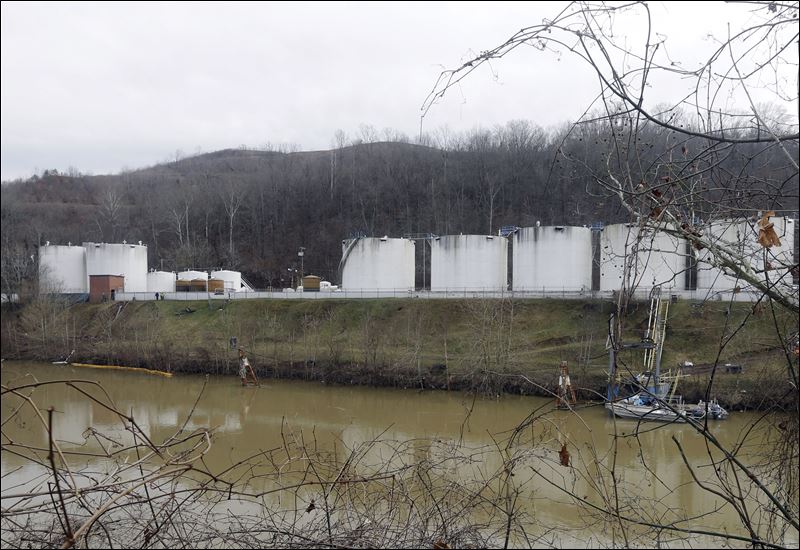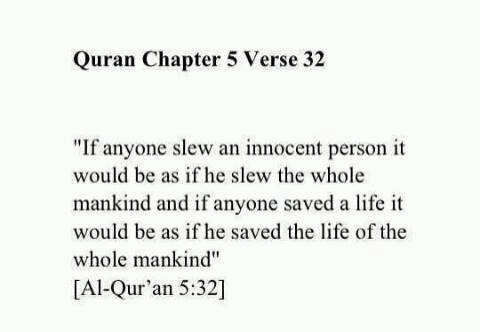Although the US Bishops’ current “Nine Days for Life” campaign focuses exclusively on abortion, there are other issues that merit acknowledgment as significant threats to life both within and outside of the womb. Tomorrow (Tuesday, January 21) at locations around West Virginia and the rest of the United States, concerned citizens will join in prayer and solidarity with those affected by the recent crisis in West Virginia and in recognition that these fragile waters sustain all life. As people gather in the nation’s capital to march in support of life this week, I encourage all who read this to consider participating in a vigil—even if it is only a few moments at your kitchen tap—to pray for what may become one of the world’s most important “life issues” in years to come: the availability of clean water.
Surely, by now those reading this have heard about the January 9 chemical spill that has left hundreds of thousands of people unable to use their water—not only for drinking, but for washing, bathing, or cooking—in the areas surrounding West Virginia’s capitol. What you may not have heard is that as of today, although the “do not use” orders have been lifted in many areas, residents still experience the distinctive black licorice smell of 4-methylcyclohexane, pregnant women have been advised not to drink the water from their tap, restaurants and businesses are still relying on bottled water for cooking and washing, and there are ongoing reports of sickness due to exposure to the chemical in precisely those areas that have been told their water is “safe.” But, as a number of articles discussing the broader context of the spill point out, it is unlikely that the West Virginia’s waters will be truly safe so long as “business as usual” continues here.
Ecological, political, and economic issues are so multifaceted and tightly interwoven in West Virginia that it’s hard to know where to begin to unravel all that the recent water crisis represents. As one recent piece in National Geographic points out, “the coal-cleaning chemical that spilled from Freedom Industries’ storage tank into the Elk River last Thursday is only the latest insult in what for some has been a lifetime of industrial accidents that have poisoned groundwater, spewed toxic gas emissions, and caused fires, explosions, and other disasters that neither state nor federal regulators have been able to protect against.” Lest it appear that regulators’ inability to prevent disasters is simply due to the fact that such “accidents” are inevitable in chemical and mining industries, it is important to recognize that political power historically has been aligned with the interests of industry in this state. The quiescence born of economic desperation is a longstanding feature of the population’s relationship with industry, as the promise of jobs and “economic development” seems to trump concerns about health and safety for not only businesses and state officials but many residents as well. “West Virginia has a pattern of resisting federal oversight and what they consider E.P.A interference and that really puts workers and the population at risk,” noted a senior scientist at the Natural Resources Defense Council in a recent New York Times piece that dealt with the state’s “lax regulations” and “questionable enforcement ethic.”
I grew up along a small creek in West Virginia, where my brothers and I spent much of our summers playing in its waters—until it turned bright orange due to acid drainage that had overflowed from an old mining operation upstream from where we lived. We relied on well water in those days, and I have vivid memories of my father washing out the black gunk that would collect in our water filter on a weekly basis. Small spills such as this as well as many which are far more devastating are such a regular occurrence that they are hardly news in West Virginia (and even large stories such as this receive scant attention in the broader media). Due to mountaintop removal mining, several thousand miles of West Virginia’s streams have been buried or turned black with toxic coal slurry (a by-product of processing coal), and even conventional mining poses the risk of acid drainage such as I witnessed as a child. Across the state, more than 12,600 miles of waterways—over 40% of its total—are listed as impaired according to a 2012 WV DEP study, and for another 11,000 miles there is insufficient data to assess the water quality. Add to this the effects of chemical industries and the as-yet-unknown impacts of the area’s development of shale gas resources, and it is not difficult to see how precarious the state’s water resources are, despite the fact that it is blessed with abundant rainfall.
Not so in other parts of the country or world, where concerns about water are often due to absolute scarcity rather than contamination. Though the issues are different, this past week’s stories about the severe drought in California and other western states powerfully reinforce the recognition of the preciousness and precariousness of fresh water, even without the threat of industrial pollution. I recently read Christiana Peppard’s important new book, Just Water: Theology, Ethics, and the Global Water Crisis (Orbis, 2014), which helpfully outlines several key dimensions of the global fresh water crisis. “Our blue planet certainly seems watery,” she writes, “but of all the water in the world, 97.2 percent is salt water, while only 2.5 percent is fresh water. Of that tiny proportion of fresh water, 70 percent is locked in ice caps and the polar regions. Nearly 30 percent is groundwater . . . and a mere 0.3 percent of all fresh water is surface water, or what we tend to think of as the ‘renewable’ water supply,” (21-22). The pressing issue is that worldwide demand for water—over 90% of which is consumed by agriculture and industry—have increased dramatically in the twentieth century, and a recent UN report estimates that by 2025 “180 million people will be living in countries or regions with absolute water scarcity, and two-thirds of the world population could be under stress conditions,” (31).
Beginning from the recognition that the need for fresh water is a universal requirement for human life—a sine qua non of human existence—and that there is no substitute for it—it is sui generis—Peppard makes a compelling argument that water must be treated as a basic human right rather than an economic commodity. With particular attention to hydraulic fracturing technologies, she calls for a “precautionary principle” which states that conclusive proof of public safety should precede pursuit of corporate profit: “When downstream effects are probable or even possible, particularly with regard to extractive technologies and their impacts on watersheds and public health, we would do well to exercise caution, for the consequences of our decisions will be borne on human bodies and within the lifetimes of future generations.” The application of this principle—which has long been disregarded in West Virginia’s extractive economy and other industries—would “subordinate the values of corporate profit and economic growth to far more fundamental values, like life, health, and the integrity of watershed in the short and long term” (167).
In his 1995 encyclical The Gospel of Life—best known for its condemnation of abortion, contraception, and euthanasia—John Paul II describes a “culture of death” which “denies solidarity” and is “actively fostered by powerful cultural, economic, and political currents which encourage an idea of society excessively concerned with efficiency. Looking at the situation from this point of view, it is possible to speak in a certain sense of a war of the powerful against the weak,” (#12). In their pastoral letter At Home in the Web of Life, published the same year, the Catholic Bishops of Appalachia appropriate John Paul’s terminology to describe the ongoing struggle of the region against exploitation and the destruction of its resources and communities. Though the struggle against a “culture of death” takes a particular form in Appalachia, they write:
We do not see this conflict
between a culture of death and a culture of life
as simply an Appalachian crisis.
Rather we see the Appalachia crisis
as a window into a larger crisis
which now threatens the entire society,
including the middle class,
and indeed the full ecosystem
across the entire planet (46)
As the letter’s title suggests, the bishops call attention to the interdependence between human life and the broader ecosystem and the ways in which the sustainability of the former depends upon valuing the latter in more than monetary terms. “In all of this,” they write, “we are haunted by the message from God which Moses set before the children of Israel to choose life rather than death: I have set before you life and death, the blessing and the curse. Choose life, then, that you and your descendants may live. (Deuteronomy 30:19).
This verse is a favorite of anti-abortion activists, whose efforts to defend life often focus narrowly on individual decisions or the legislation that permits or denies them. As I stated at the beginning of this post, however—and as John Paul II’s language of “culture” (recently reiterated by Pope Francis, who spoke of abortion as emblematic of a “throwaway culture”) suggests—it is necessary to focus on a broader range of issues and attitudes that undergird the readiness to see some human lives as expendable for the sake of efficiency. In a short article published several years ago in Commonweal, Maura Ryan points out that although “the link between advocating for the unborn and for child-protective environmental policies should not be hard to see . . . an ideological disconnect guides many supporters of ostensibly prolife administrations whose environmental policies are retrograde.” She argues that “to move beyond rhetoric and exert real influence on behalf of children’s health, we need to be educated, self-critical, and imaginative about what it means to enact social policy that protects the most vulnerable.” [1]
All life on earth—born or unborn, human or nonhuman—depends on having access to clean water. Whether or not you are inclined to pray for an end to abortion this week, I encourage you to take time tomorrow to promote a culture of life by joining in solidarity with those who have been affected by the chemical spill in West Virginia, acknowledging the value and vulnerability of the waters that sustain us.
1. Maura Ryan, “Toxic Legacy: Why the Environment is a Life Issue,” Commonweal (September 25, 2009), p. 8-10.




